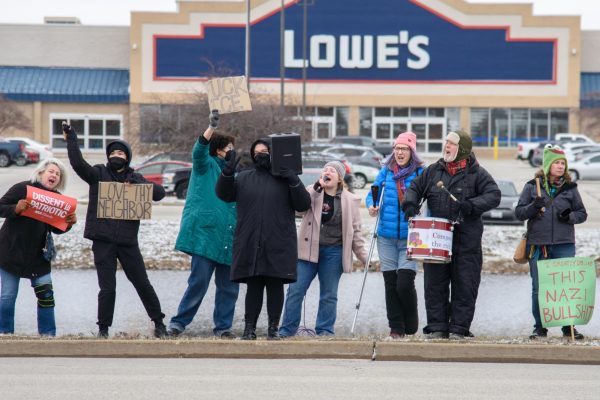Council passes partner registry
May 3, 2005
Last updated on May 11, 2016 at 09:04 p.m.
Laurel Prussing, the new mayor, and five new aldermen took their position on the Urbana City Council Monday night, but not before the outgoing City Council had the opportunity for one last debate.
Before the ceremonies, however, the Urbana City Council officially passed an ordinance creating a domestic partner registry despite alderman Joe Whelan’s vehement opposition. Last week, the ordinance was sent to the council with a recommendation of approval, and Whelan announced that he was retiring a week early because of financial considerations. However, he decided to debate the issue further because he felt strongly about the it.
Whelan referred to the registry as “social engineering,” and complained that the partnerships are too easy to terminate.
The amendment easily passed though, affirmed by alderwoman Danielle Chynoweth who worked actively to get the ordinance through.
Get The Daily Illini in your inbox!
“As a bisexual woman myself, I had the experience of having a set of my relationships completely legitimized and seeing another set of my relationships completely invisible and completely not recognized,” she said.
Chynoweth said she spoke to a number of older couples who expressed enthusiasm to finally be able to have their relationships recognized.
The registry does not carry the same legal rights as marriage. It was designed for public recognition of relationships and a reference for employers who wish to offer benefits to employees’ domestic partner. It is available to both same-sex and opposite-sex partners.
There was one change from the version passed last week. Originally, those who are claimed as dependents on someone else’s tax returns could not be part of the registry. The council moved to remove the stipulation Monday night.
The City Council also instructed city staff to create a system that would allow Urbana to offer domestic partner health benefits.
Chief Administrative Officer Bruce Walden said some details still needed to be worked out because different employee groups, such as those who work for the police and park district, have different contracts. But, he added that the benefits would cost the city little money.
Save for the debate over the registry, it was a night filled with goodbyes, memories and celebration as outgoing aldermen and Mayor Tod Satterthwaite, who had been in office since 1993, received awards and congratulated each other on accomplishments during their time in office.
“Obviously, there are several reminders as you drive down the street,” he said of the work done by the council during his time as mayor.
Leaving the City Council were Whelan, who served 26 years; Jim Hayes, who had 12 years of experience; Esther Patt, who served 11 years; Ruth Wyman, who served 8 years in office; and Christopher Alix, who had served in an interim position since January.
U.S. Rep. Tim Johnson (R-Ill.) appeared at the meeting to thank the outgoing aldermen and congratulate the incoming members, including his daughter, Heather Stevenson.
“You do a good job of expending public dollars, and I want to work with you every way that I can,” Johnson said.
Despite the loss of experience on the City Council, the incoming and two remaining aldermen have set some goals for the next term. They met on Sunday to discuss issues they see as important in the next term and establish rules during their term.
The new council discussed the possibility of a Philo Road subcommittee consisting of councilmen and local neighborhood and business leaders to revitalize the area commercially, as well as ways to dispel the perception of aldermen being at odds against one another. The aldermen discussed referring to each other on a first name basis, and appearing at the Farmer’s Market, scheduled to begin on May 14.
The incoming City Council might have an easier time with the city budget. After losing about $250,000 a year in utility tax revenues when the University began producing their own power at Abbott Power Plant, Urbana and the University have come to an agreement that provide easements of $200,000 to Urbana’s budget for the current fiscal year and the next.
Walden noted his appreciation to the University for working with the city on the issue. He said that there was no specific plans for the additional money, but that police would be an area examined in the budget. All members of the City Council expressed a desire to expand police forces during their campaign.





